Equatorial GuineaMapAugust 20...22, 2014 It’s interesting how the most often-used word in country names is Guinea: there’s Guinea itself, Guinea-Bissau, Papua New Guinea and Equatorial Guinea. And they’re all completely different. Equatorial Guinea is the wealthiest and most closed-off among them. Russian citizens have a much easier time getting a visa to come here than American or European ones, mainly because Russians never planned to take part in the plot against the perpetual local president. The European plot was thwarted ten years ago, and the president has enough oil revenue to stop worrying about the absence of income from tourism. Nevertheless, I ended up changing planes in Douala at the worst possible moment: my connecting flight was simply canceled due to the Ebola epidemic that had suddenly broken out on the continent. Because of this, Equatorial Guinea had shut down its borders and was only letting its own citizens fly in. At least from Cameroon. I ended up having to fly through Libreville, which is apparently more civilized from Equatorial Guinea’s point of view. 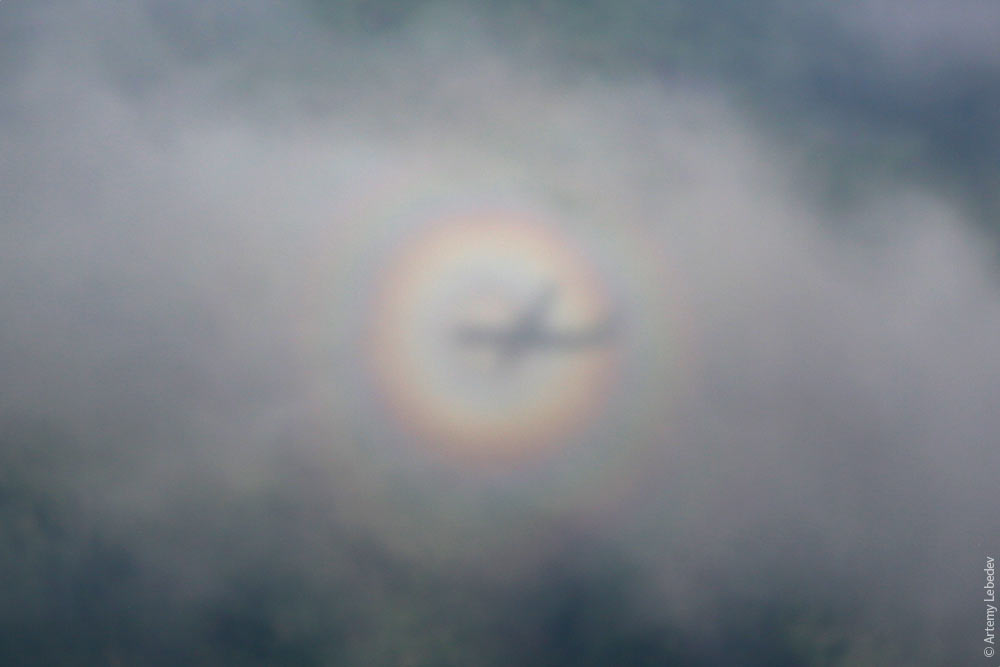 The country’s main source of income is oil. And it’s one of the most developed countries in Africa. 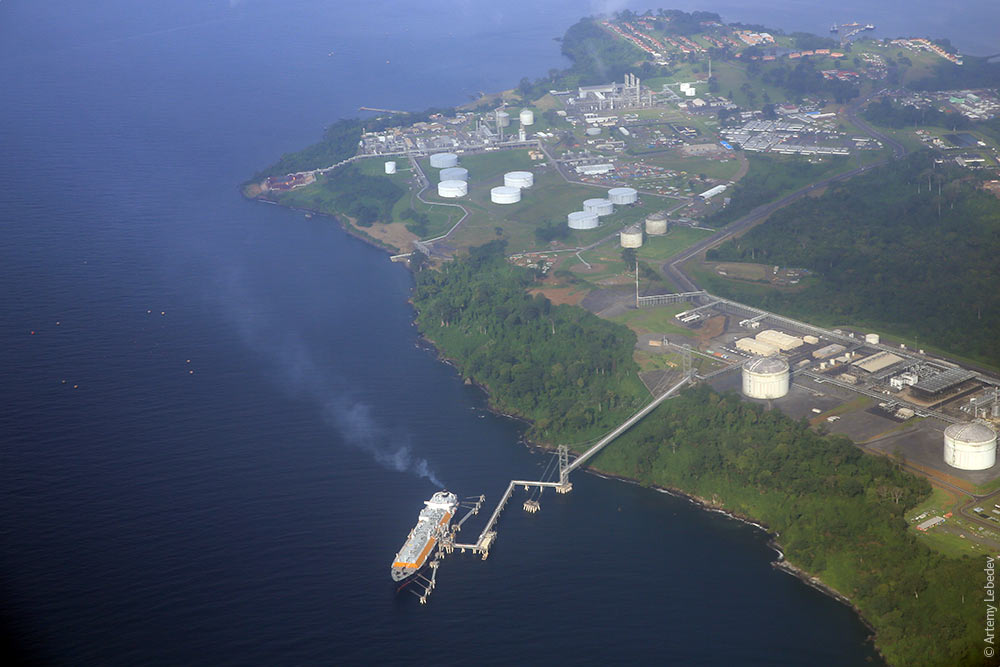 But there’s no rush to distribute the wealth among the people. 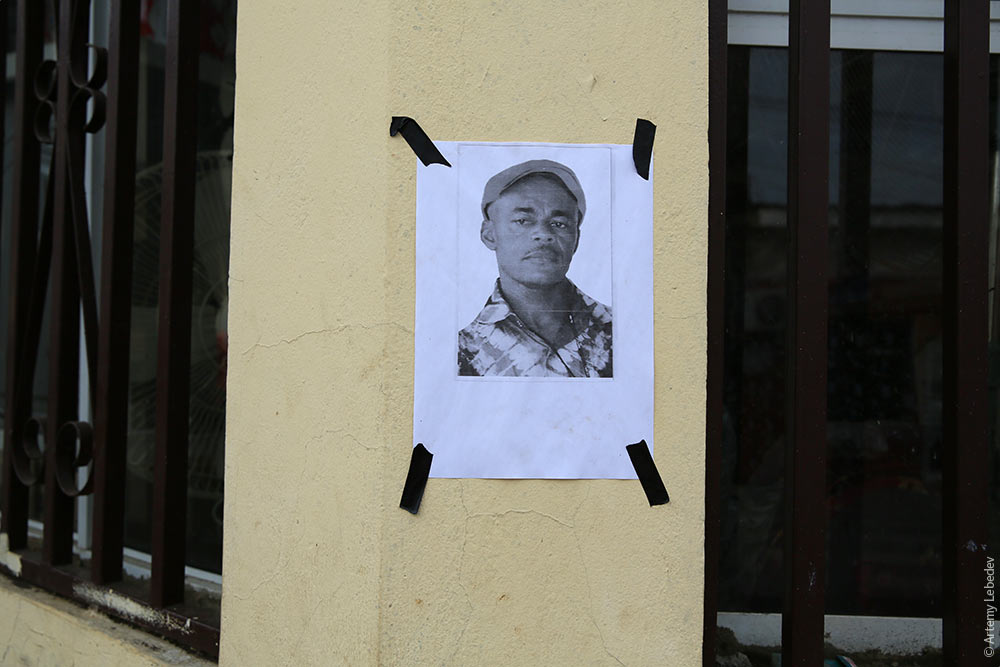 The national symbol is the Ceiba tree, something like a baobab. It’s everywhere. Even the national airline is called Ceiba. And, of course, you’ll be hard-pressed to find a monument without a Ceiba. 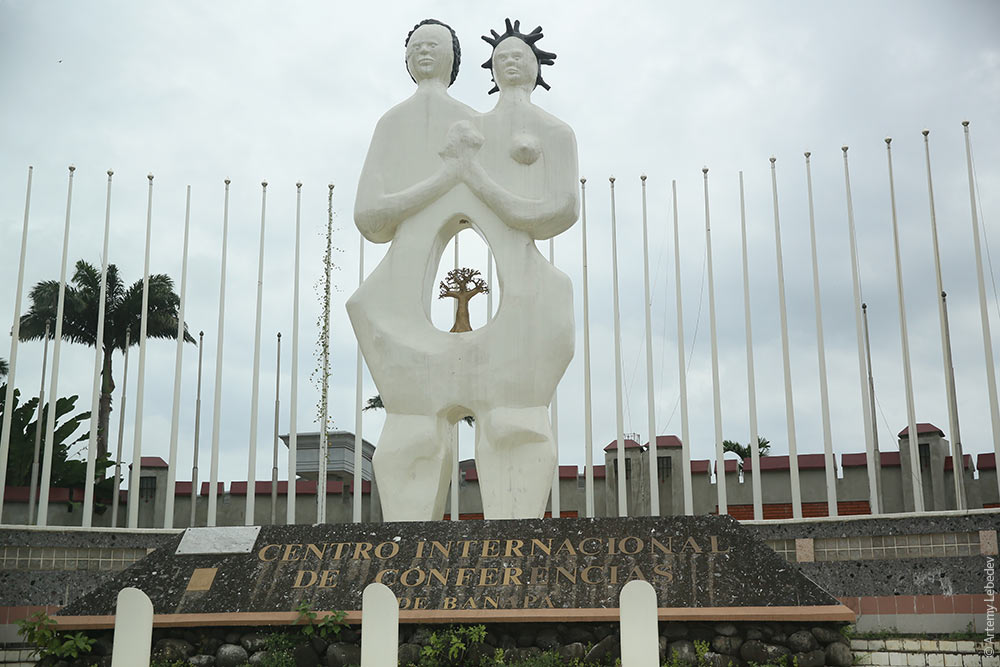 The local license plate. 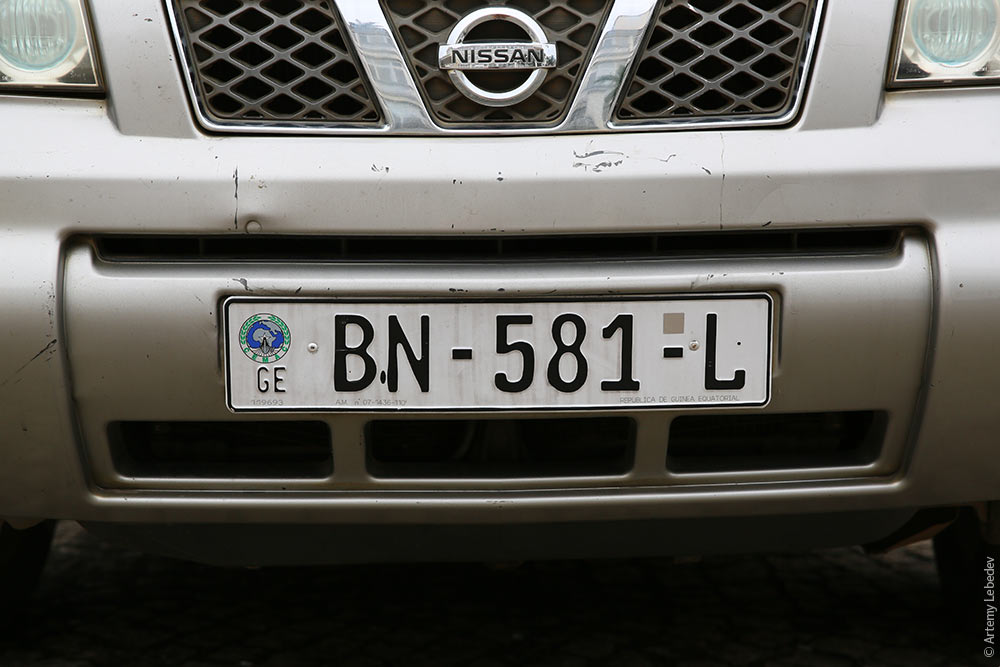 MalaboMapAs already mentioned above, after the failed coup the president became paranoid. And I was told right at hotel check-in that photographing the presidential palace is strictly prohibited. Nevertheless, it turned out that a) my room looks out directly onto the presidential palace and helicopter pad and b) the room’s windows open all the way. I don’t know, I feel like other countries have a less cavalier approach to the safety of their head of state. 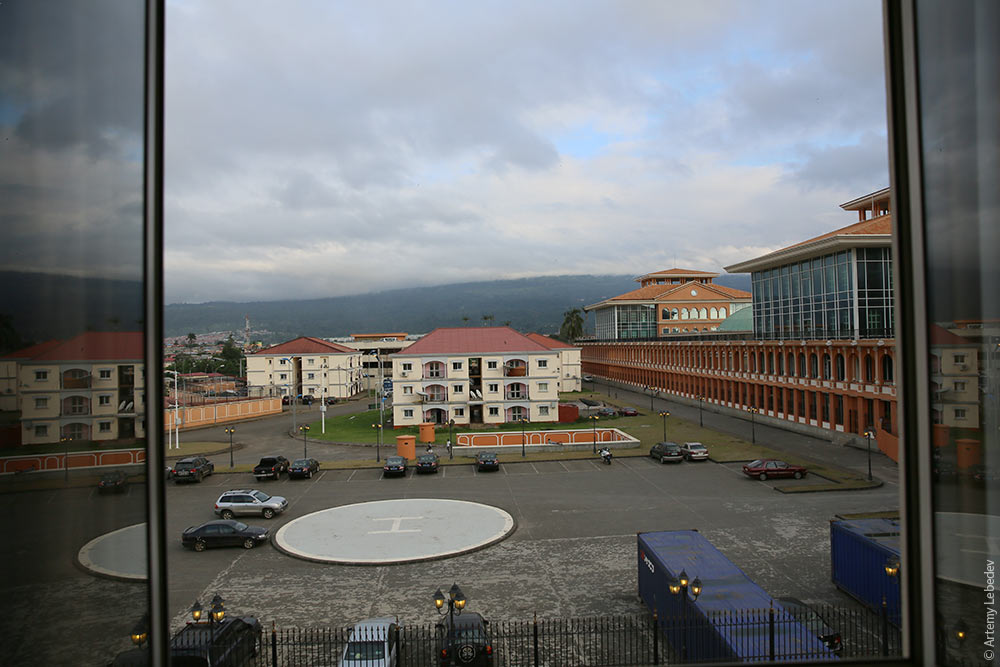 They say you can’t openly take photos in the capital. Unfortunately, I didn’t know about this until I was already leaving, and before that I’d been walking around with zero issues. Here’s the colonial downtown area. 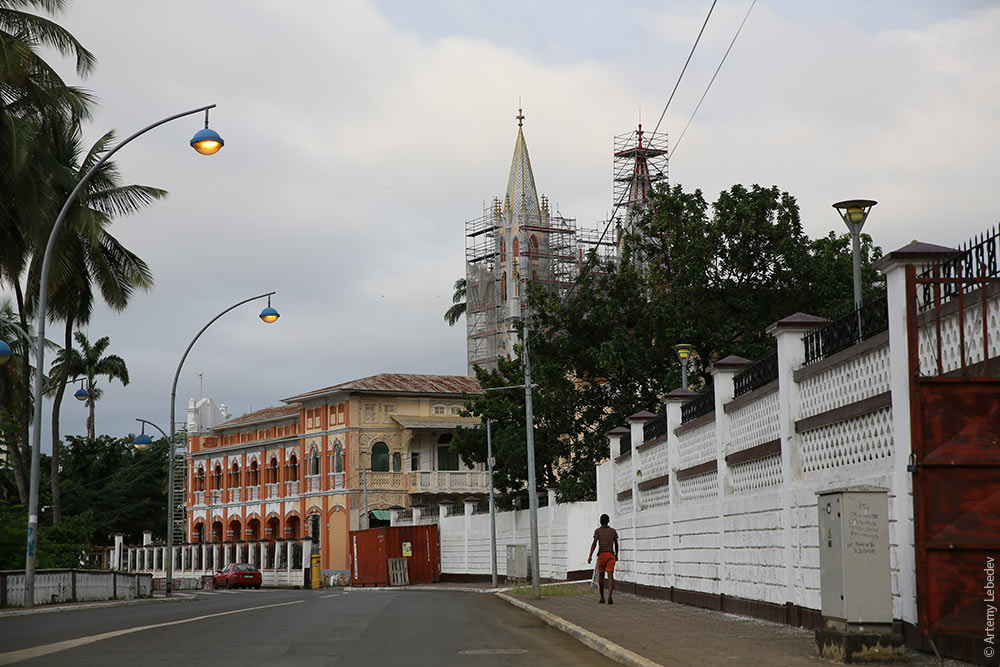 A bus stop. 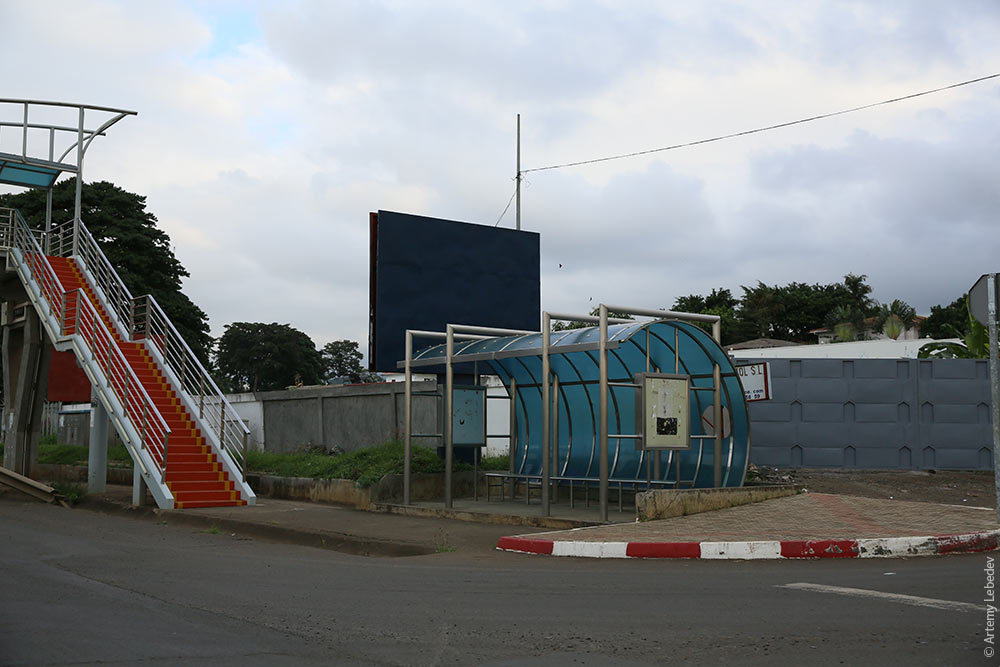 An electrical equipment box. 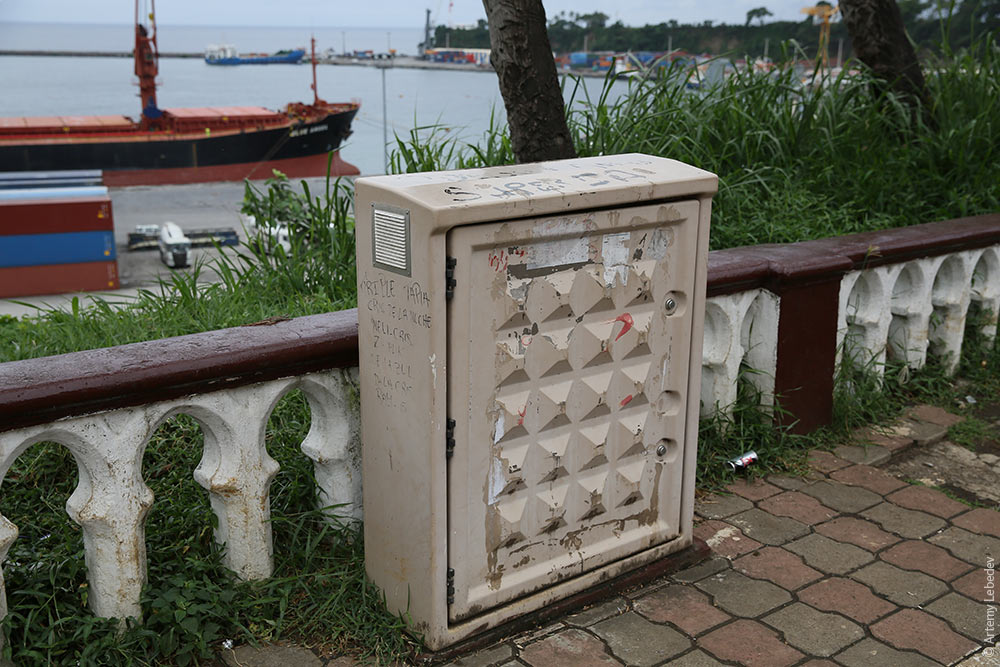 A traffic light. 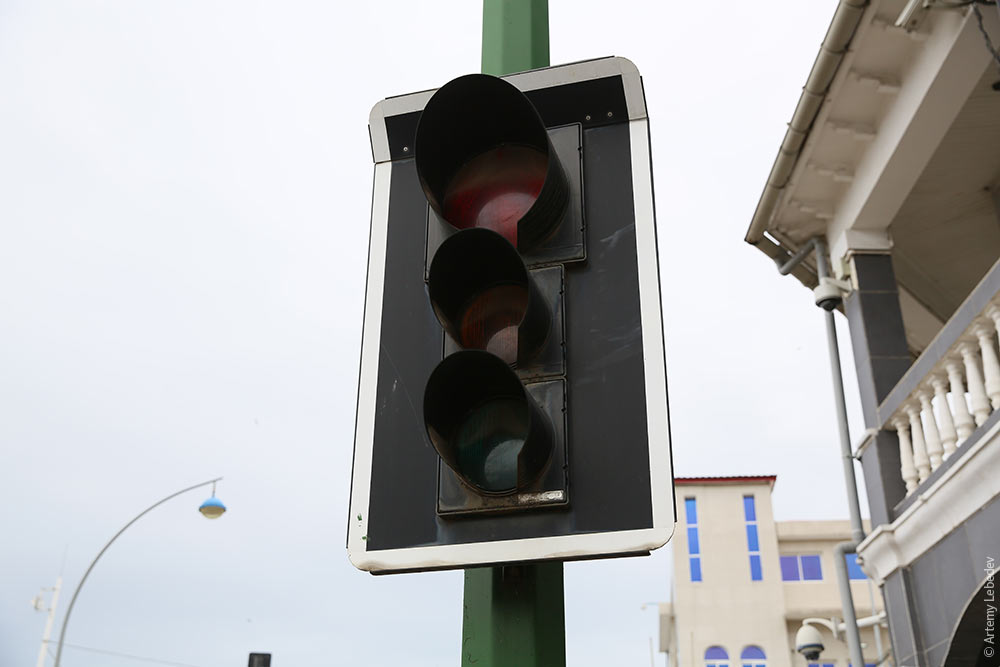 A kiosk. 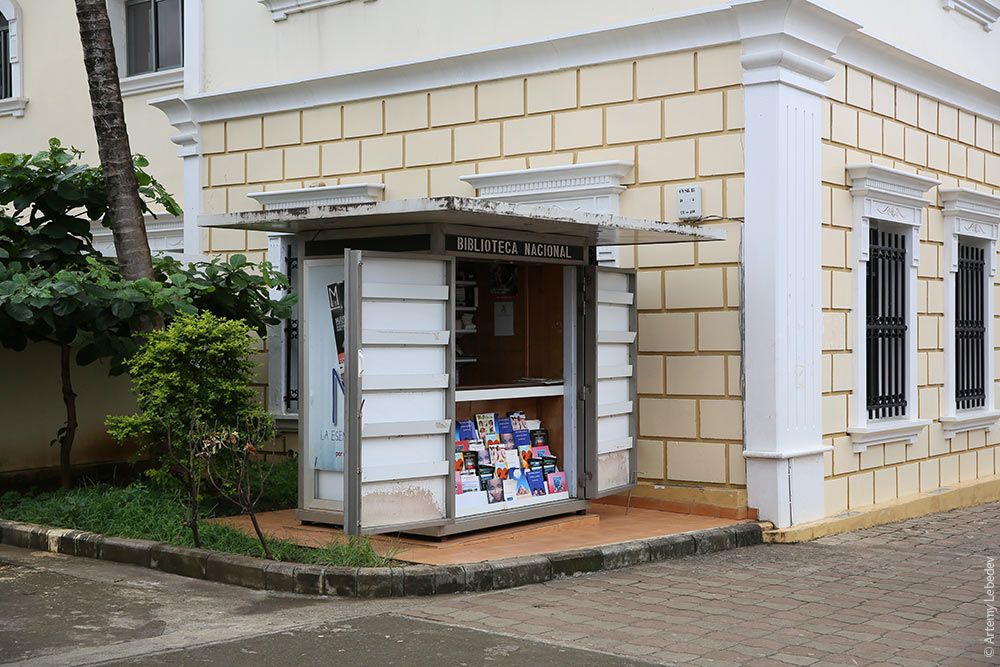 A manhole cover. With a Ceiba, naturally. 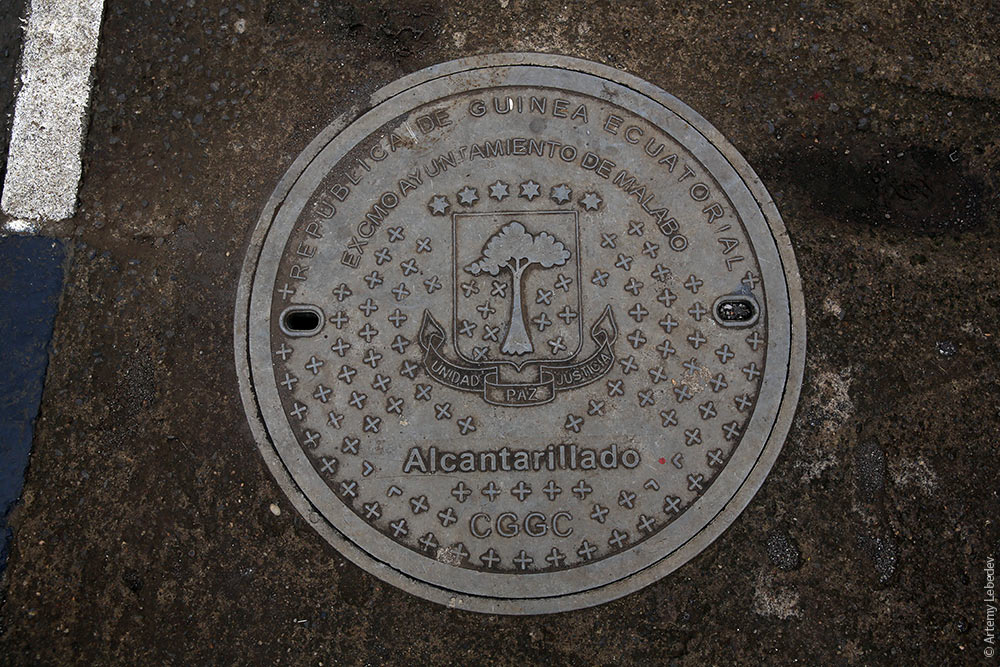 A municipal trash can. Also with a Ceiba. 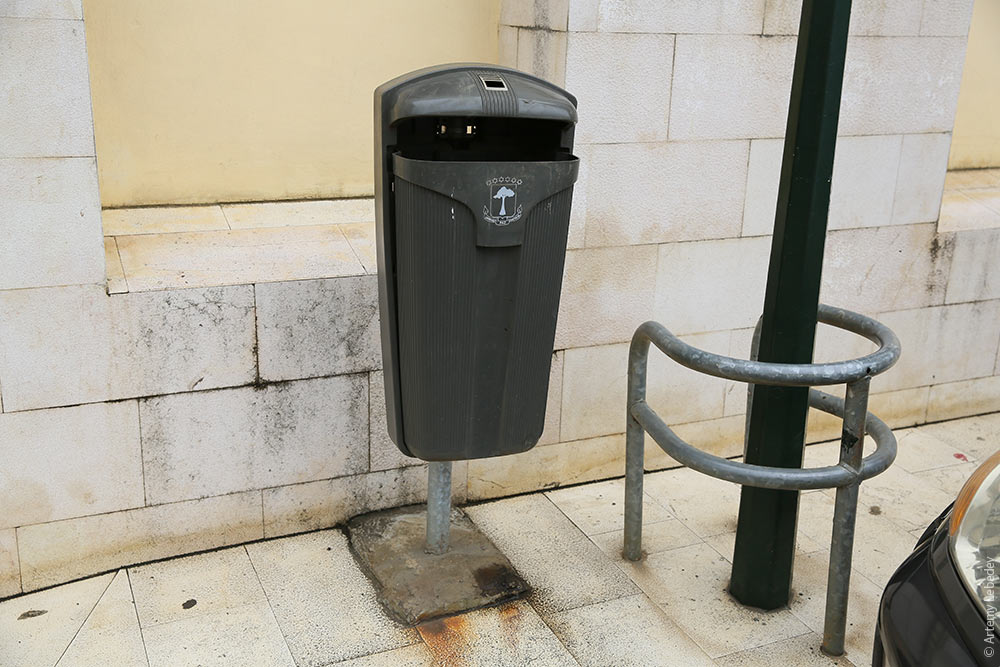 Trash dumpsters. 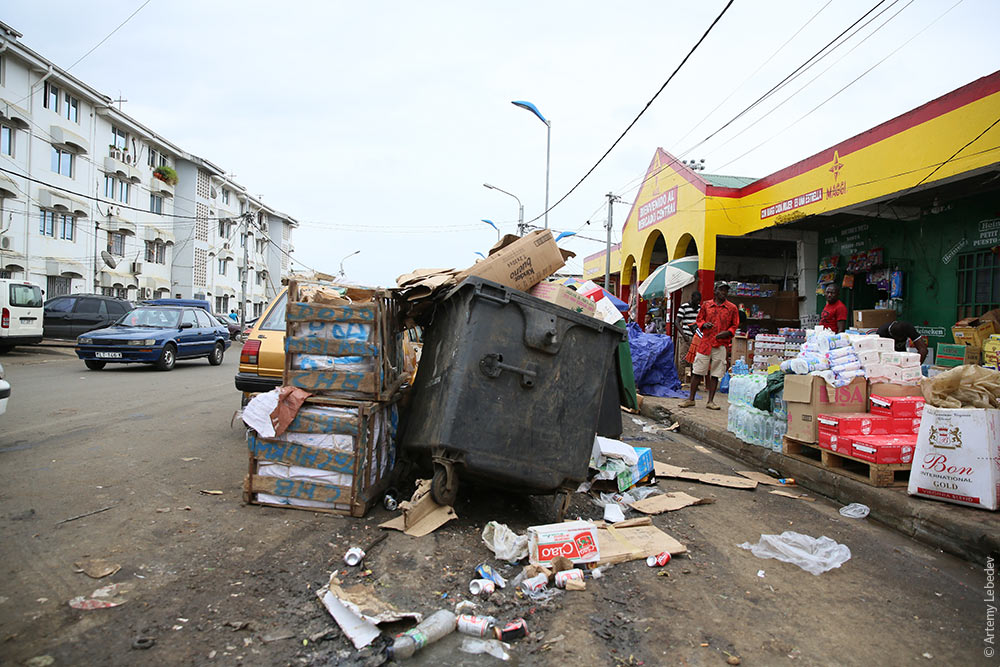 A street sign. 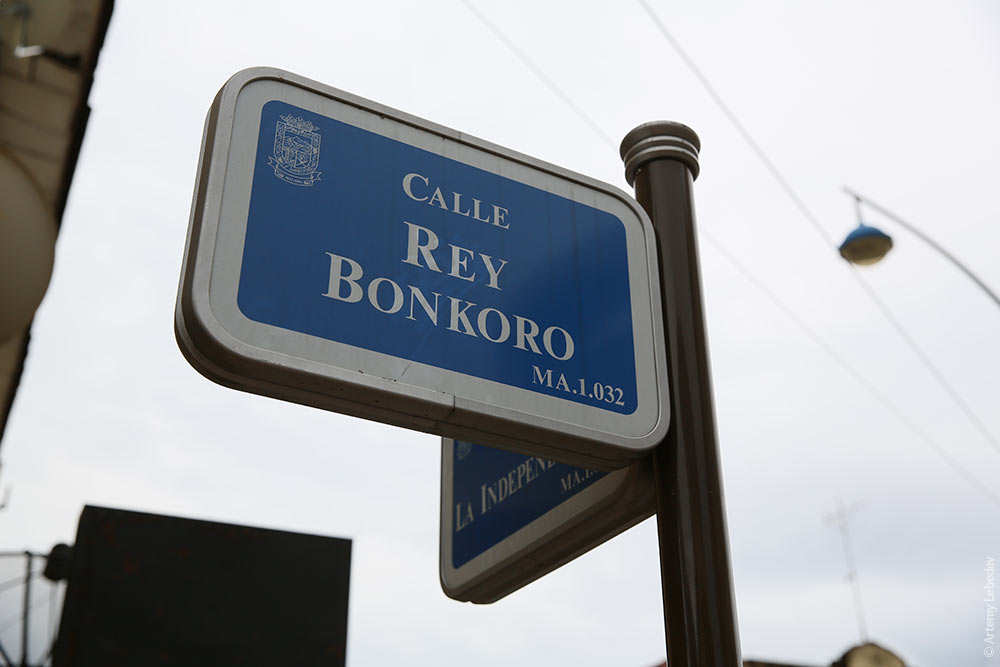 A street. 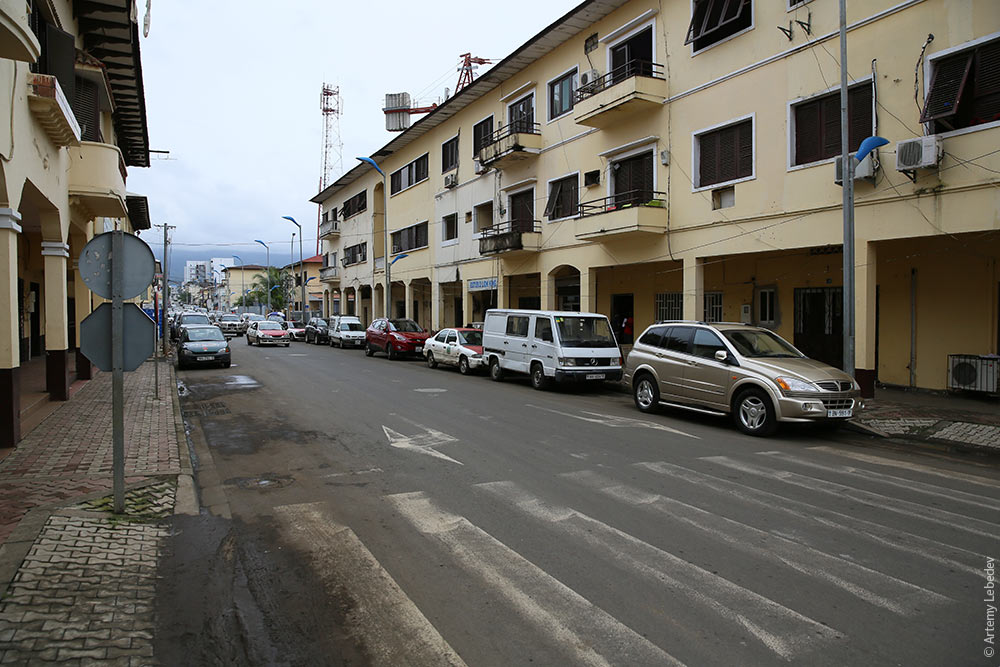 A fruit vendor. 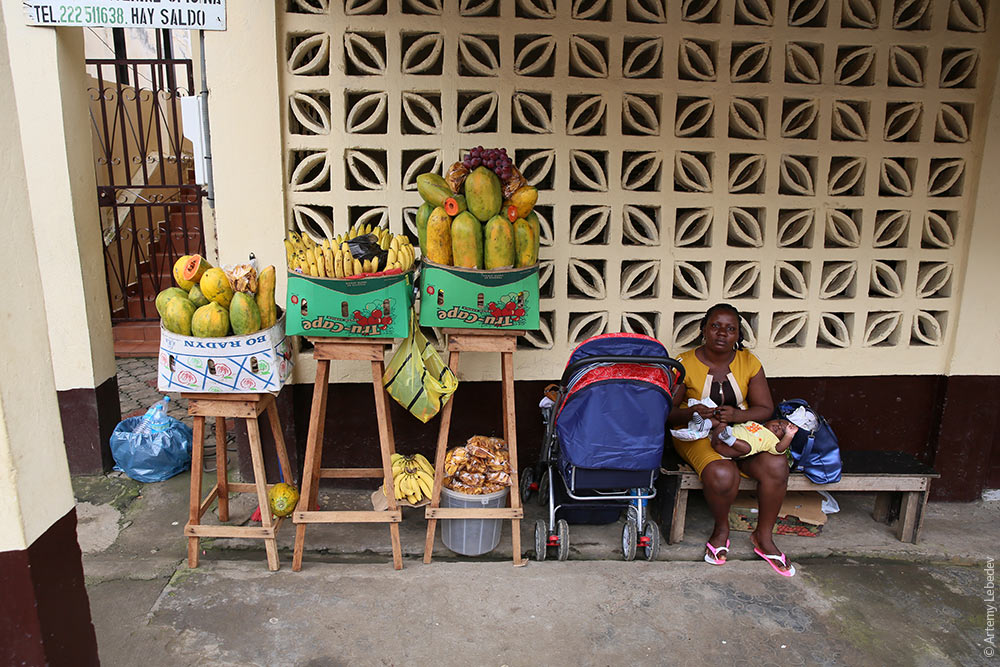 The difference in living standards is upheld. A wealthy neighborhood: 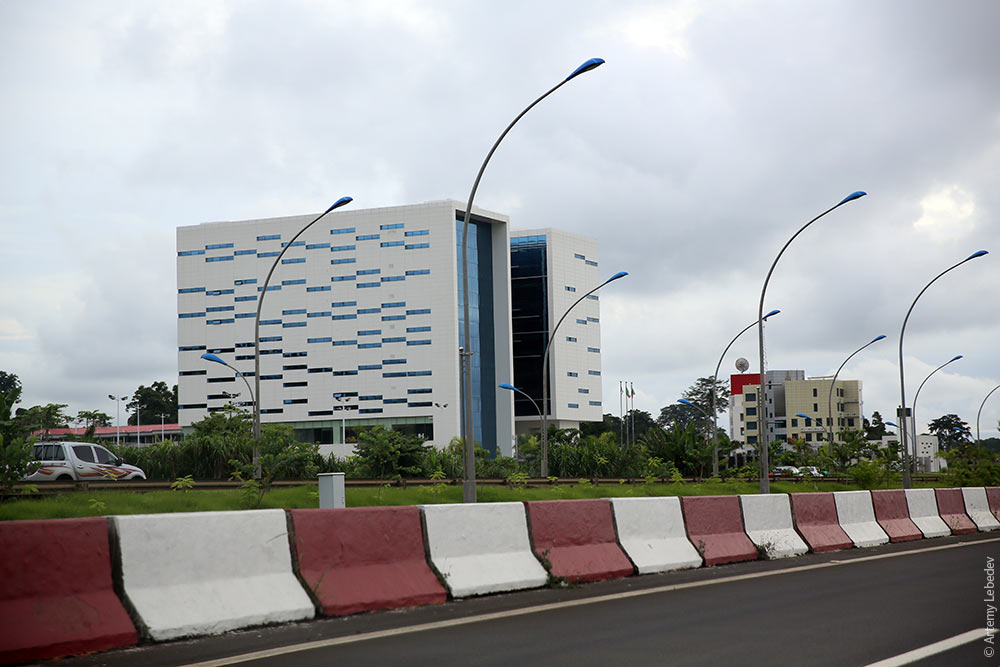 A neighborhood for regular people: 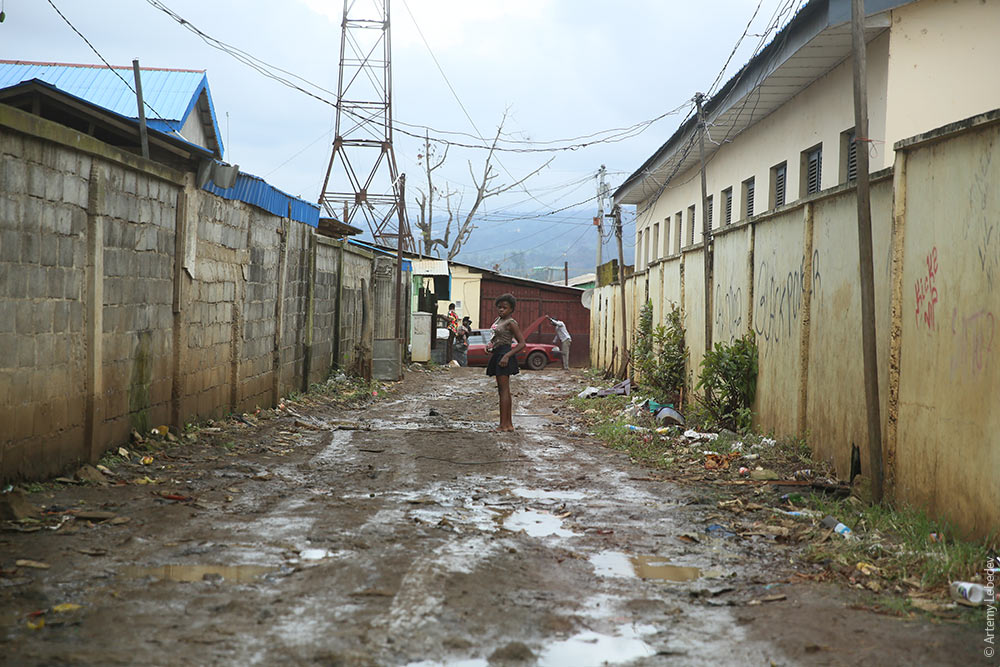 Electricity consumption visualized. 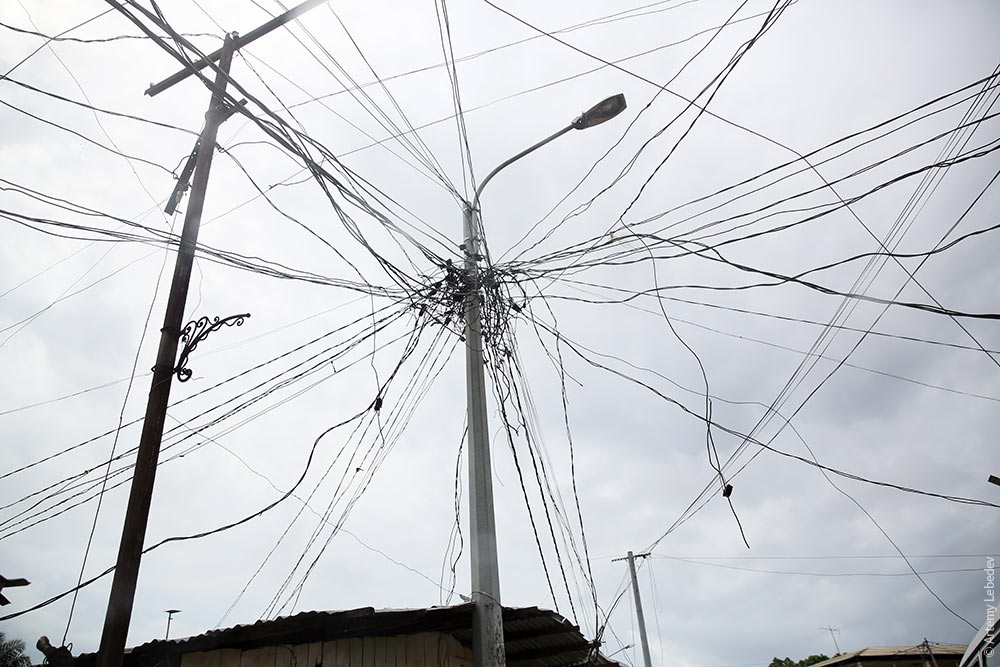 A monument. 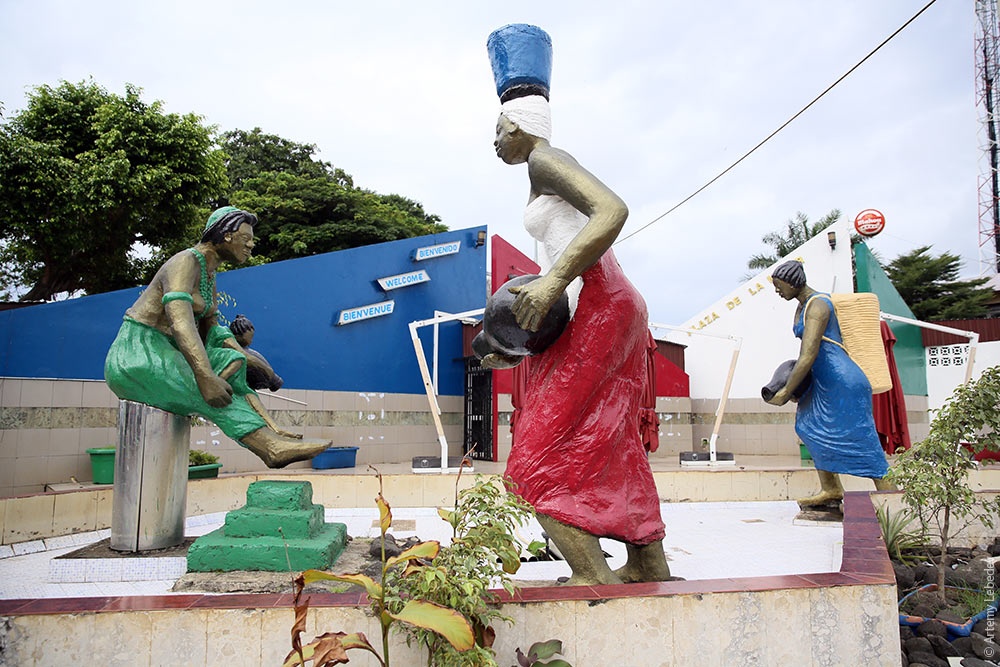 A suburb. 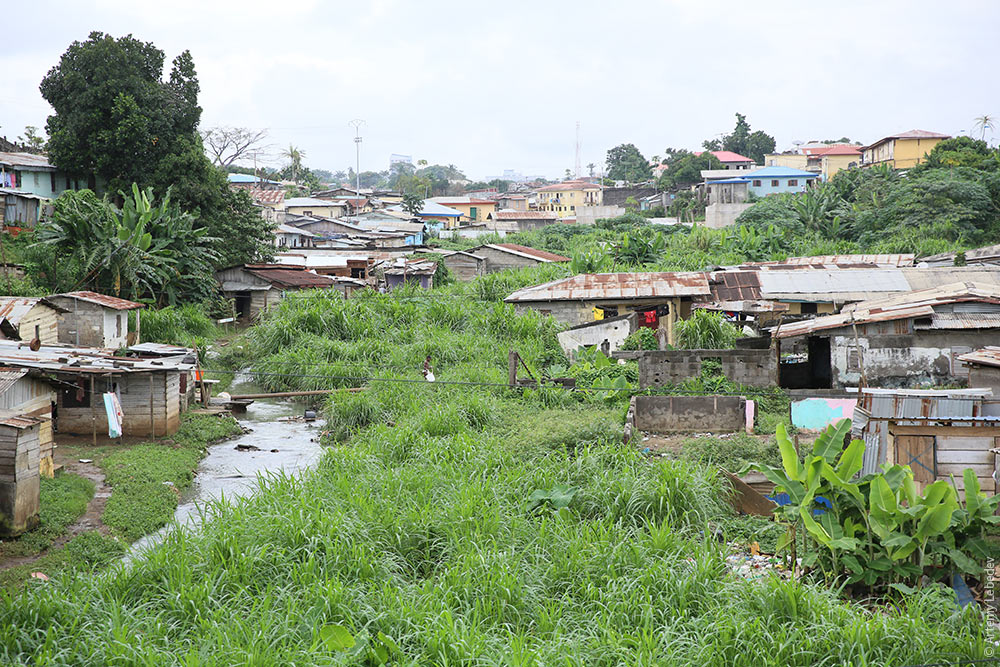 Downtown. 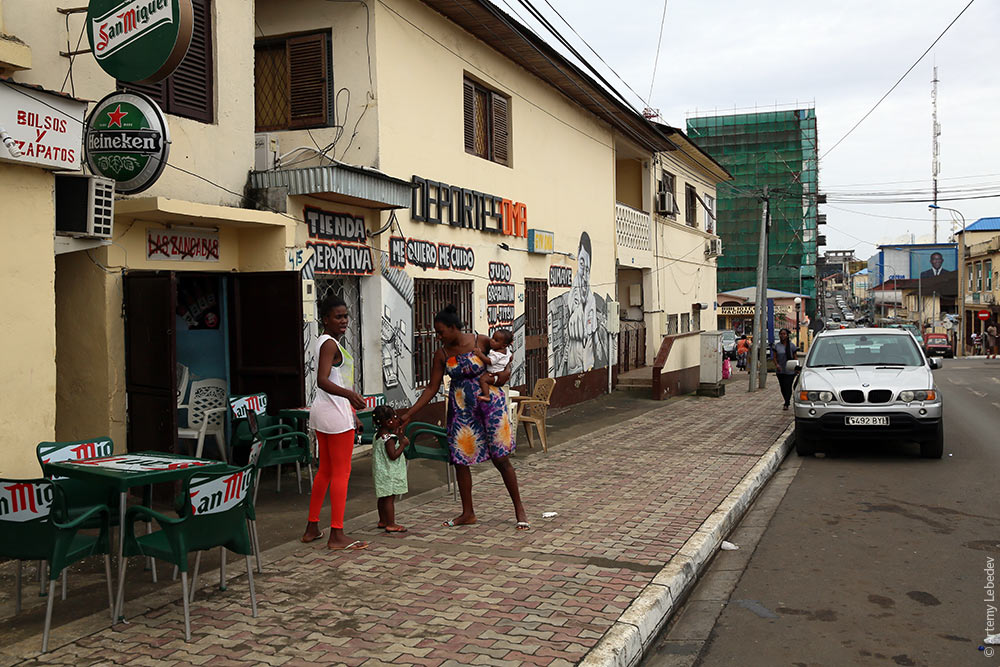 Today, Equatorial Guinea is the only independent Spanish-speaking country in Africa (Sahrawi doesn’t count). Traces of colonialism. 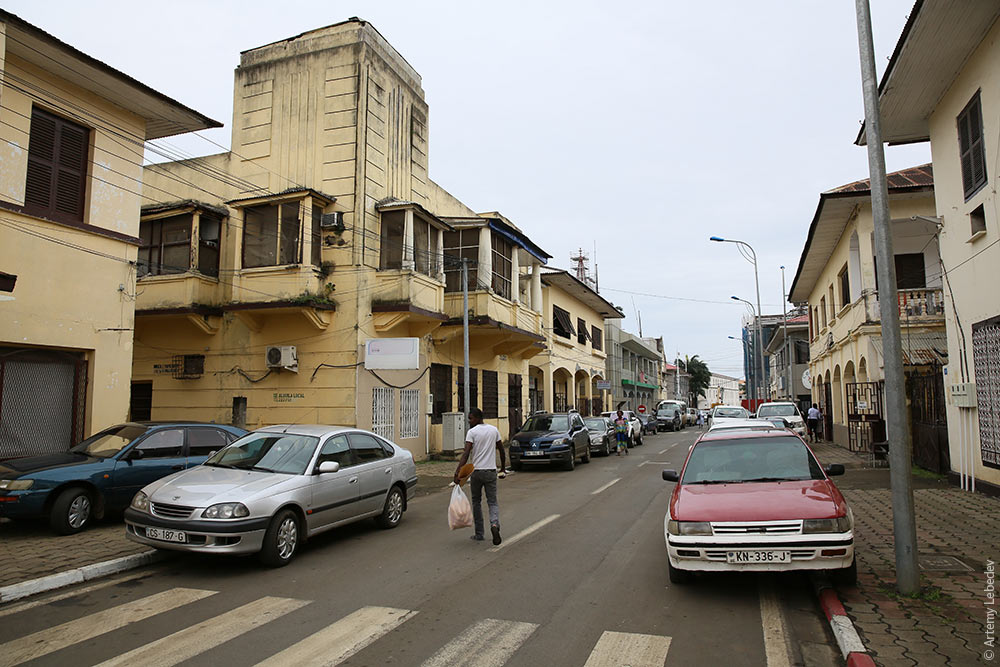 An excellent road digger. 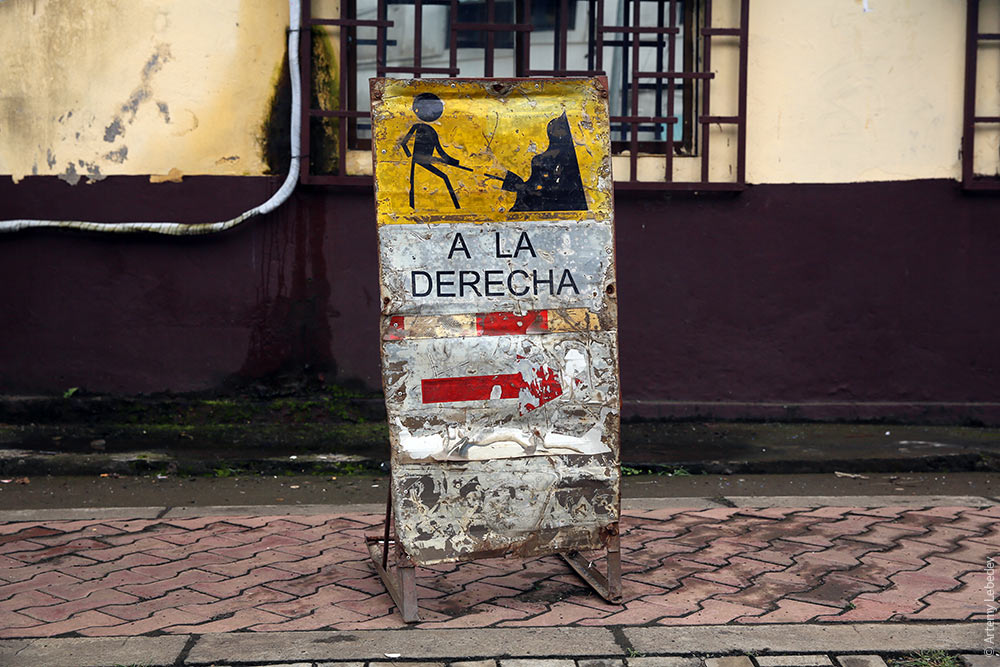 The barred ground floor arcades indicate that theft isn’t uncommon here. 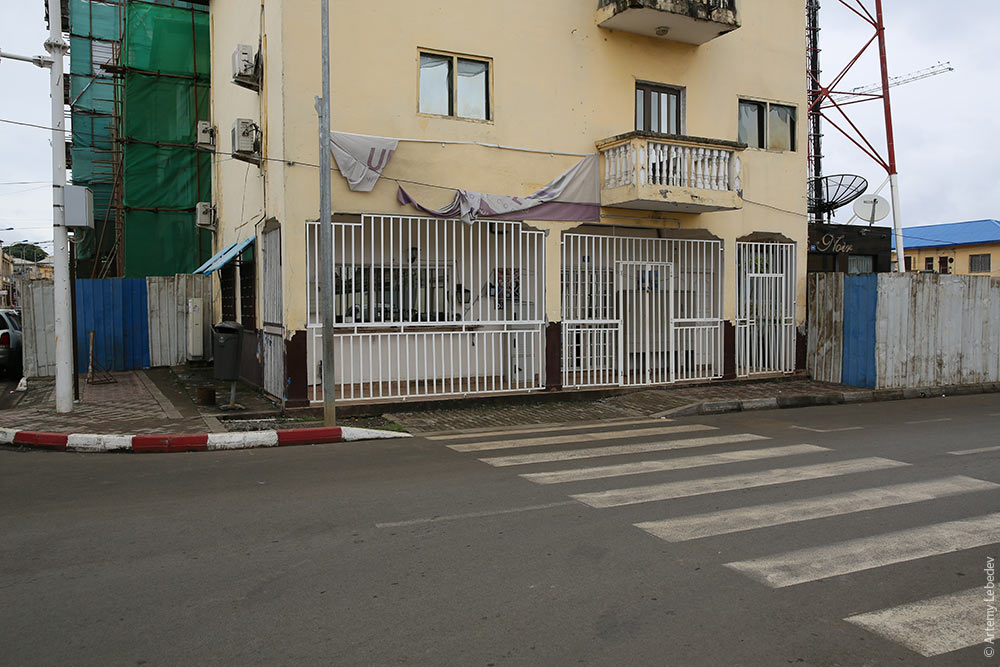 A post office. 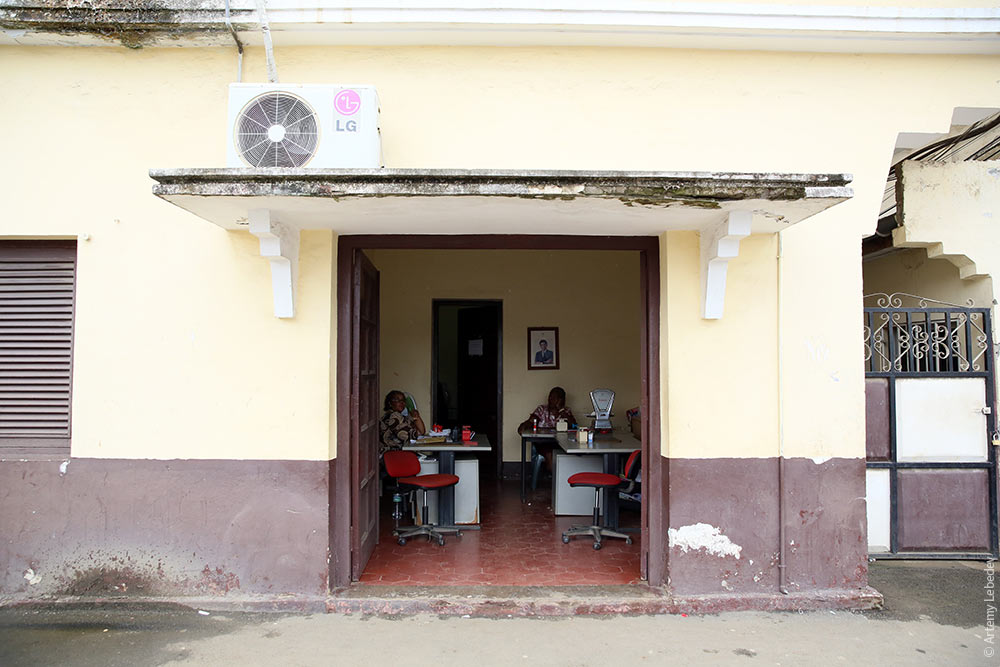 Equatoguinean women. 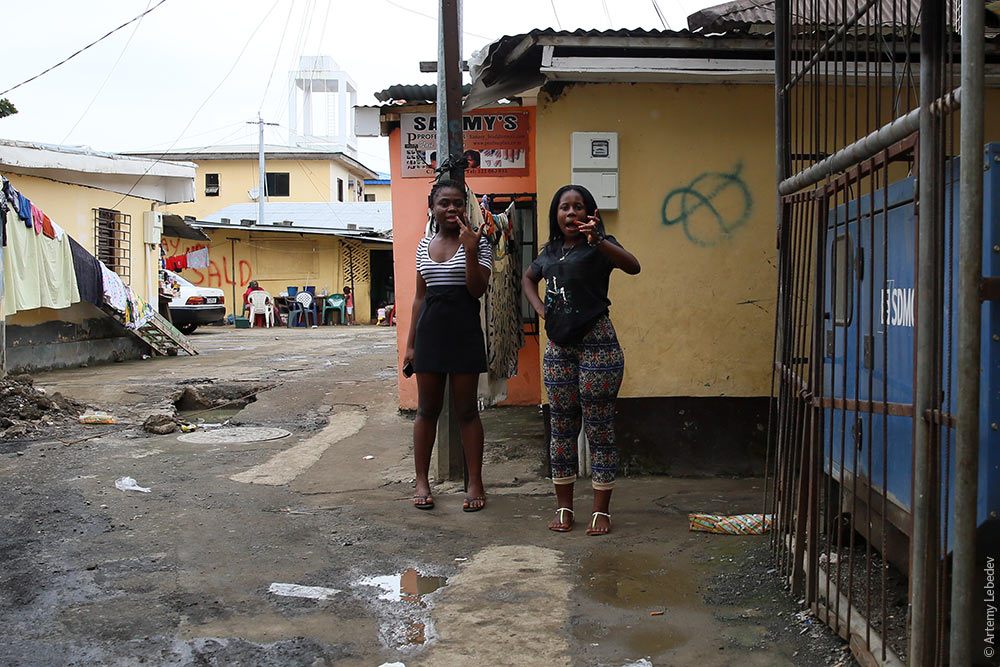 Another pair. 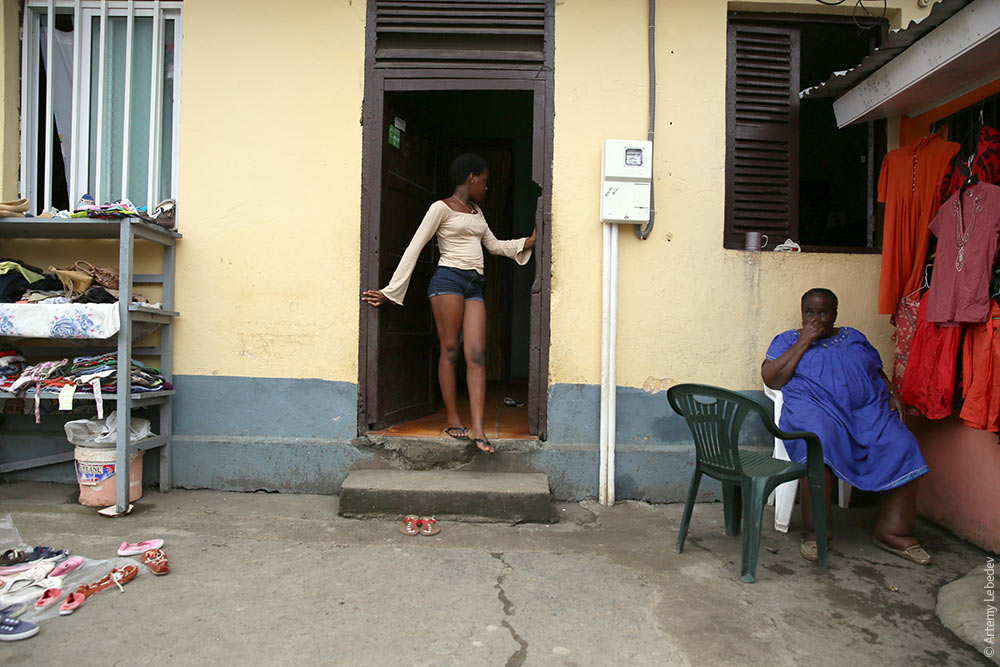 On the porch. 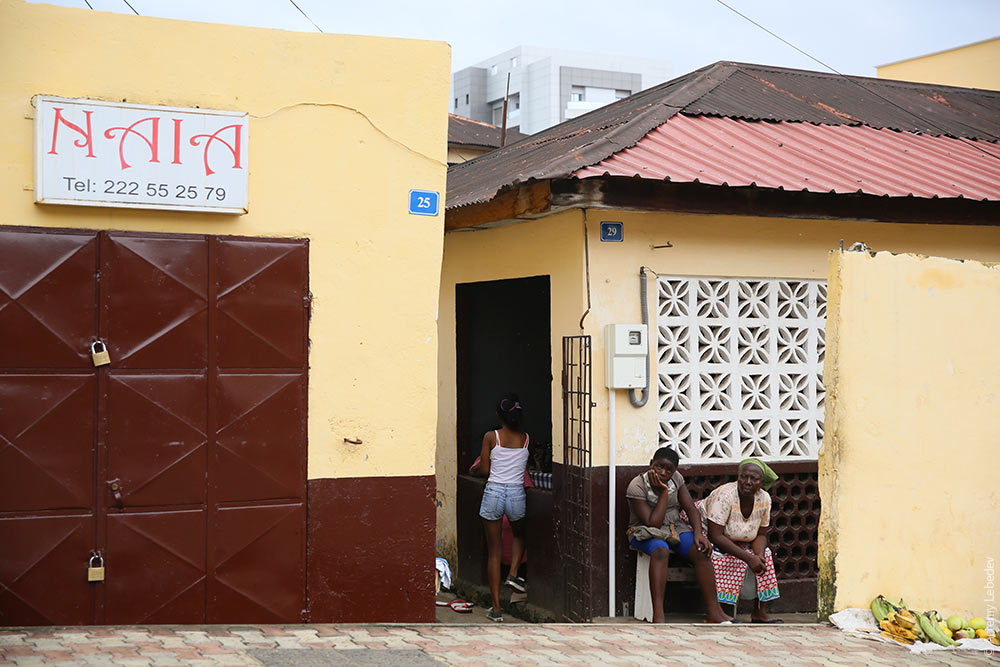 Children. 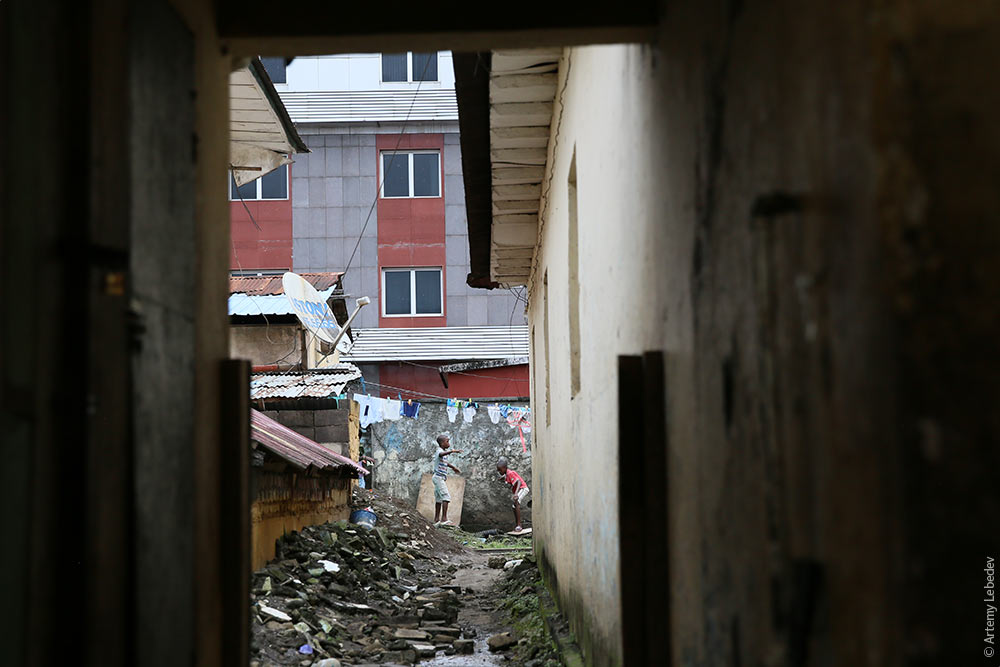 Adults. 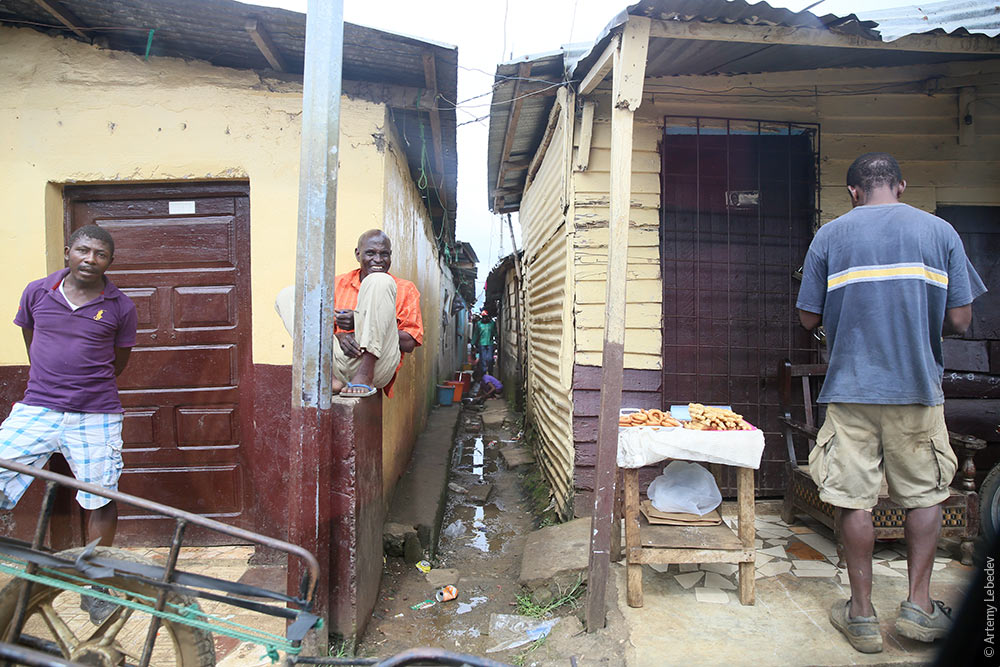 At the market. 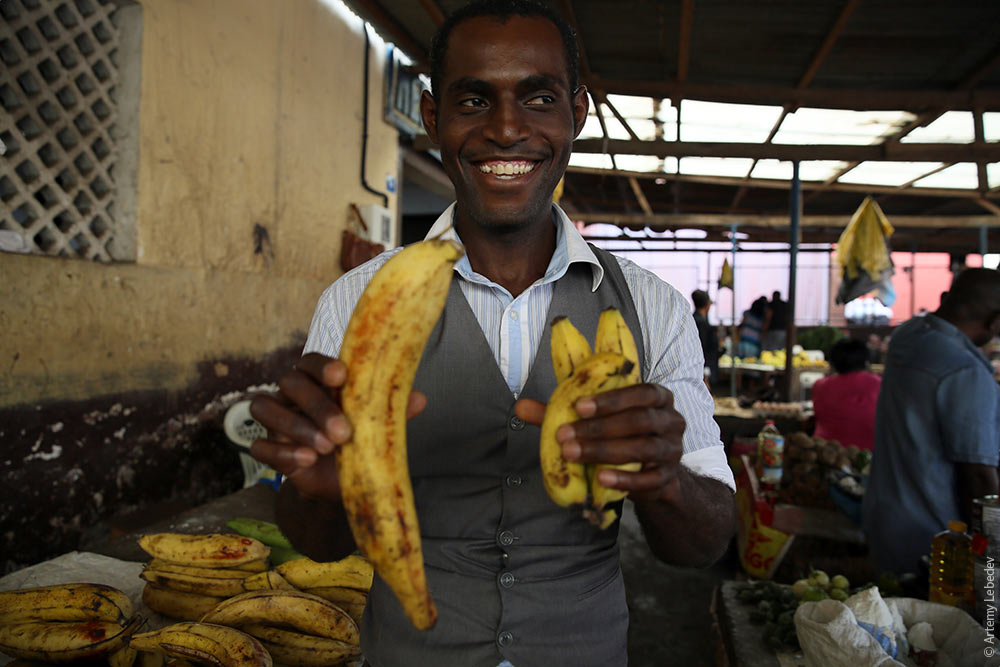 The district for foreigners and important guests. 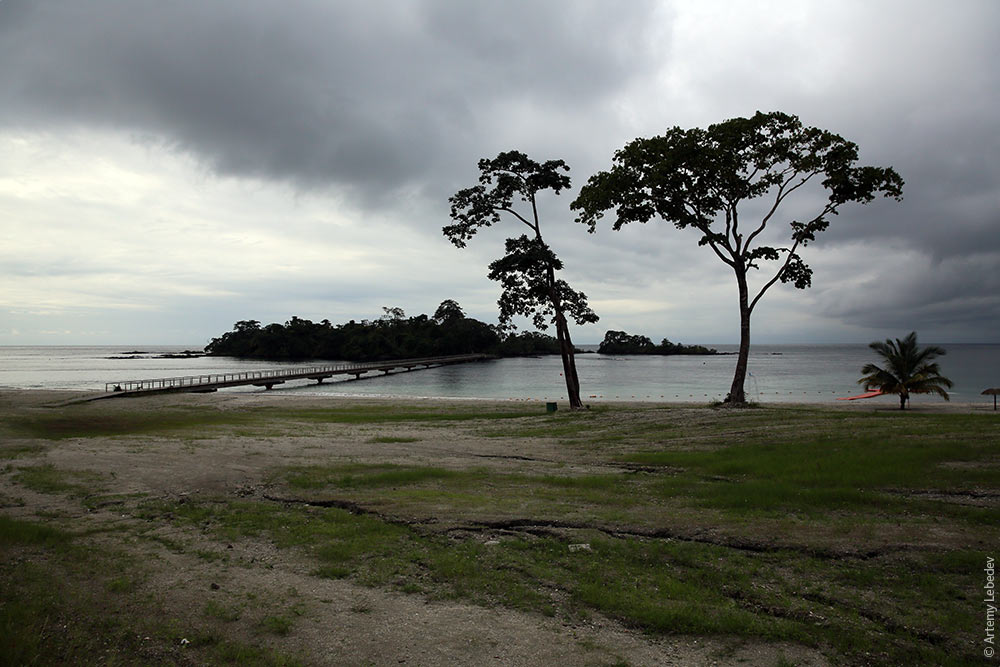 Essentially, it’s a completely normal country, only it’s impossible to buy postcards here. Because there’s never anyone to sell them to. |